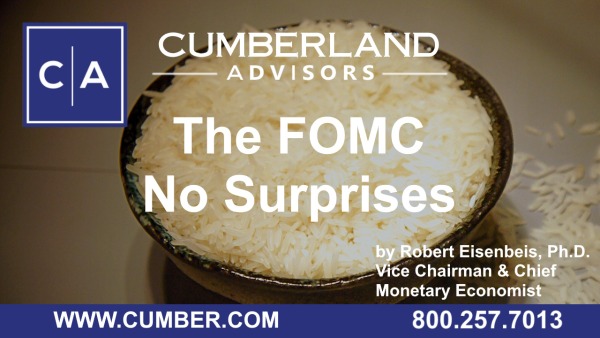It should have been no surprise that the FOMC decided at its first meeting of 2024 to hold rates constant. Its rationale was based upon a moderating but strong labor market, a low unemployment rate, an expanding economy, and a slowing inflation rate, but still above target. Against this background, the Committee noted in its statement that the risks to achieving its dual employment objectives and inflation goal had moved into better balance. Markets had seemingly priced in near-term rate cuts and were disappointed that Chairman Powell, at the post-meeting press conference, put a damper on that expectation.
Powell began the press conference by stating that the Committee would not begin cutting rates until it was “confident” that the economy was on a path towards 2% inflation and full employment. A great deal of the subsequent Q&A focused on what kinds of evidence over what period of time would be required to ensure “greater confidence” that policy was on the desired path. In response, Powell declined to give specific numbers or time periods to obtain that confidence but instead pointed to evidence from incoming data, though the exact timing was considerably uncertain. For example, if incoming inflation data declined significantly, then cuts might come sooner. Conversely, if inflation plateaued or increased, then cuts might be delayed. Similarly, if there was significant evidence that unemployment suddenly increased or there was evidence of significant weakness in labor markets, then cuts might come sooner. Powell did, however, suggest that March would be too soon. Additionally, when it came to the three cuts that were penciled in for 2024, Powell did state that those were in the December SEPs, which were prepared when participants expected growth in Q4 2023 to be slower than it subsequently turned out to be. The March 2024 SEPs might reflect a different view on timing if growth continues to be strong.
On another matter, how tight policy was judged to be would be based upon both the policy rate and the Fed’s decision to continue to let its portfolio run off. Powell indicated that continued runoff combined with a steady policy rate could still be viewed as a marginal policy tightening. The issue of runoff and how large the portfolio should be are issues that will be briefed and discussed at the upcoming March FOMC meeting.
The bottom line of the meeting and press conference was that more data and continued progress on inflation were required before the Committee could be “confident” that policy was on the correct path and begin to contemplate when policy might begin to be loosened. Right now, while the risks to inflation and employment are in better balance, considerable uncertainty remains as to how the economy might evolve. When questioned, Powell firmly stated that it was as yet too soon to declare that a soft landing had been achieved.
Sign up for our FREE Cumberland Market Commentaries
Cumberland Advisors Market Commentaries offer insights and analysis on upcoming, important economic issues that potentially impact global financial markets. Our team shares their thinking on global economic developments, market news and other factors that often influence investment opportunities and strategies.


